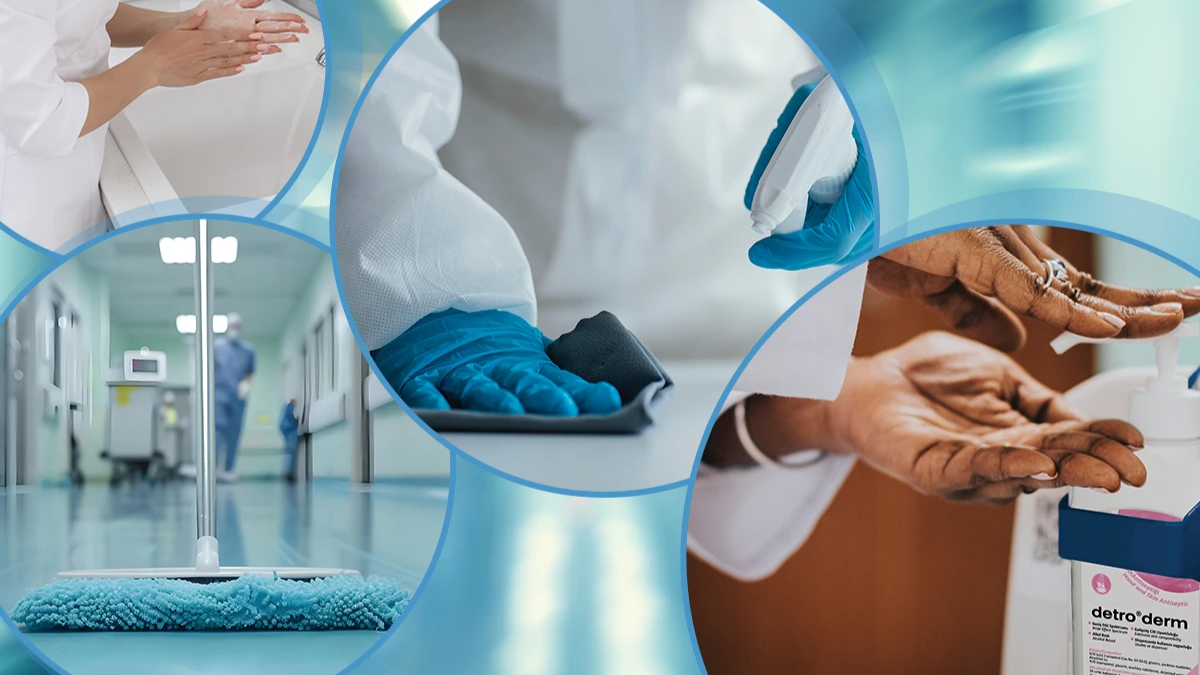Infection control and hygiene services are critical in hospitals to prevent the spread of infections among patients, staff, and visitors. Hospitals implement strict protocols, sterilization methods, and monitoring systems to maintain a safe and clean environment. Effective infection control reduces healthcare-associated infections (HAIs) and ensures patient safety.
Importance of Infection Control in Hospitals
- Prevents Healthcare-Associated Infections (HAIs): Reduces infections acquired during hospital stays.
- Protects Patients and Staff: Minimizes risk of contagious diseases.
- Supports Recovery: Ensures a safe environment for healing.
- Compliance with Regulations: Meets national and international health standards.
- Public Trust: Maintains the hospital’s reputation for safety and quality care.
Key Components of Hospital Infection Control
1. Hand Hygiene
- Regular handwashing by staff, patients, and visitors.
- Use of alcohol-based sanitizers to reduce microbial transmission.
2. Sterilization and Disinfection
- Sterilizing surgical instruments, medical equipment, and reusable items.
- Disinfecting patient rooms, operating theaters, and high-touch surfaces.
3. Isolation Protocols
- Separating patients with contagious diseases to prevent cross-infection.
- Use of dedicated equipment and protective clothing.
4. Waste Management
- Proper disposal of medical waste, sharps, and contaminated materials.
- Segregation of hazardous and non-hazardous waste.
5. Surveillance and Monitoring
- Tracking infection rates and identifying outbreaks promptly.
- Regular audits and inspections to ensure compliance with protocols.
6. Vaccination and Staff Health
- Immunization programs for hospital staff.
- Regular health checks to prevent disease spread.
Role of Infection Control Staff
- Infection Control Officers: Develop policies, oversee implementation, and investigate outbreaks.
- Hospital Epidemiologists: Analyze data and identify trends in infections.
- Nurses and Support Staff: Follow hygiene protocols and assist in infection prevention.
- Microbiologists: Test samples and identify pathogens.
- Educators: Train staff on hygiene practices, PPE usage, and infection prevention.
Challenges in Hospital Infection Control
- High patient volume leading to increased risk of cross-contamination.
- Antibiotic-resistant bacteria complicating infection management.
- Ensuring consistent compliance with hygiene protocols among staff.
- Limited resources for advanced sterilization equipment in some hospitals.
- Managing infection control during pandemics and outbreaks.
Future of Hospital Infection Control
- Advanced Sterilization Technologies: UV-C light, hydrogen peroxide vapor, and automated sterilizers.
- AI and Digital Monitoring: Predicting infection risks and tracking hygiene compliance.
- Tele-Infection Control: Remote guidance for hospitals in rural or resource-limited areas.
- Antimicrobial Surfaces: Reducing microbial growth on high-touch areas.
- Staff Education and Simulation Training: Continuous learning to reduce errors and improve hygiene practices.
FAQs on Hospital Infection Control and Hygiene
1. Why is infection control important in hospitals?
It prevents the spread of infections, protects patients and staff, and ensures safe recovery.
2. Who is responsible for infection control in hospitals?
Infection control officers, epidemiologists, nurses, microbiologists, and support staff.
3. What are common infection control practices?
Hand hygiene, sterilization, disinfection, isolation, and waste management.
4. How are hospital-acquired infections prevented?
Through strict protocols, monitoring, vaccination, and staff education.
5. What challenges exist in infection control?
High patient load, antibiotic resistance, compliance issues, limited resources, and outbreaks.
6. How is medical waste managed in hospitals?
By segregating, safely disposing, and treating hazardous and non-hazardous waste.
7. What role do vaccines play in hospitals?
They protect staff and patients from preventable diseases.
8. How can technology improve infection control?
Through AI monitoring, predictive analytics, UV sterilization, and digital compliance tracking.
9. Are hospital infection control measures regulated?
Yes, hospitals follow national and international health and safety standards.
10. What is the future of infection control in hospitals?
Advanced sterilization, AI tracking, tele-infection control, antimicrobial surfaces, and continuous staff training.

